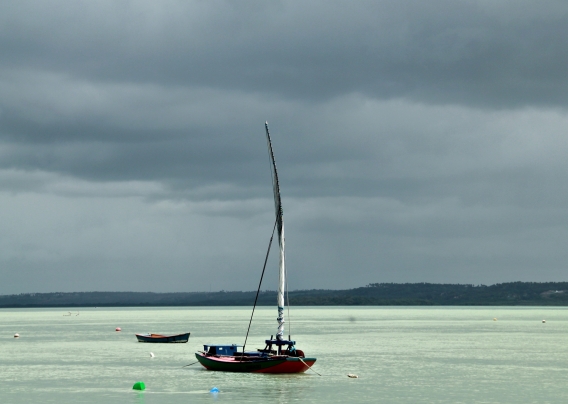
Rainy Season
The heat keeps rising every year, sunshine is never lacking here, solar radiation levels are the highest in the whole continent, but when the rain comes it comes very welcome and hardly disturbs everyday life in our region.
Northeastern Brazil is commonly known for the scorching sun and the overwhelming drought that has historically caused many families to migrate to the southeast of the country. The coast is already a more stable area that receives more constant rains, but still does not compare with coastal regions of the southeast such as Serra do Mar which has large volume of rainwater, cloudiness and humidity all year round. On the coast of our region specifically, we have no mountains or mountains so close. The rains occur a few days a year, usually come from the open sea, are transient and punctual, as they do not encounter barriers along the coast.
We spent the whole year practically without thinking about the rain and not counting it due to its infrequent frequency throughout the year and also the high temperatures and solar radiation that we receive in the so-called sun land. In any case, we have been feeling the effects of climate change and change over the last decade mainly.
I remember that from 10 to 15 years ago, the rain was right in May and June, which always came in a fleeting and welcome way. It arrived shortly after summer and marked the end of the high season. It was rare for us to have a full day of rain, normally it would be a cloudy day, with passing rainfall and variations between sun and cloudy weather. The ratio was from a rainy day to three sunny days.
As we have observed lately, climate change has affected regions known for the abundance of water, such as southeastern Brazil that sits on one of the largest aquifers in the world, the Guarany aquifer, but which in recent years has suffered from drought, lack of water and rations that left the population on red alert, declaring a state of calamity in most cities and major urban centers in São Paulo, Minas Gerais and Rio.
Already here in our rich region, it seems to me that climate change has come more positively, as we have had a more generous rainy season compared to the two traditional annual months. The waters of March have literally closed the summer, we have had longer rainy days and larger than normal volume. Rivers that used to be practically dry all year round now have abundant water. New aquifers and mineral springs are being discovered and explored in our state, all this water greens the forests and brings life to the rivers, lakes and lagoons of the Serra, restinga and caatinga potiguares. Agriculture thrives and dry regions come to life.
The heat keeps rising every year, sunshine is never lacking here, solar radiation levels are the highest in the whole continent, but when the rain comes it comes very welcome and hardly disturbs everyday life in our region, on the contrary, it has been very good for our land in general.
A new movement begins to form, the southerner flees from the south and southeast of the country in search of better temperatures and more fertile and balanced regions. The Northeastern who for many years fled the suffering of drought, now begins to welcome the Paulistas, miners and cariocas who decided to migrate to our rich and blessed land.
There is also another phenomenon that has occurred with increasing rainfall in cities such as Natal, which has recently suffered from landslides and floods in urban areas. All it takes is a full day's rain to alert the city and many of its major urban roads become flooded. Our sandy, loamy soil is a natural mineral filter that stores water in very rich groundwater. However, this same soil cannot absorb as much water as it has fallen between the months of March and June. This also causes flooding and acceleration of cliff erosion, rapidly transforming coastal clippings and natural landscapes, as well as the daily life of cities and their structures.
Plants and animals thank, lakes, ponds and river beds as well. In times of general drought, having more water than usual is somehow a divine blessing.
Preservation of natural resources is also essential for environmental balance.
Let's enjoy the rain, let it come with vigor and balance. In times of water scarcity, we can consider ourselves millionaires.
Will the hinterland really turn sea?
By Isaac Ache. Text originally published in Bora Magazine - Issue 11 - Apr / May 2015






 ESPAÑOL
ESPAÑOL
 PORTUGUES
PORTUGUES
